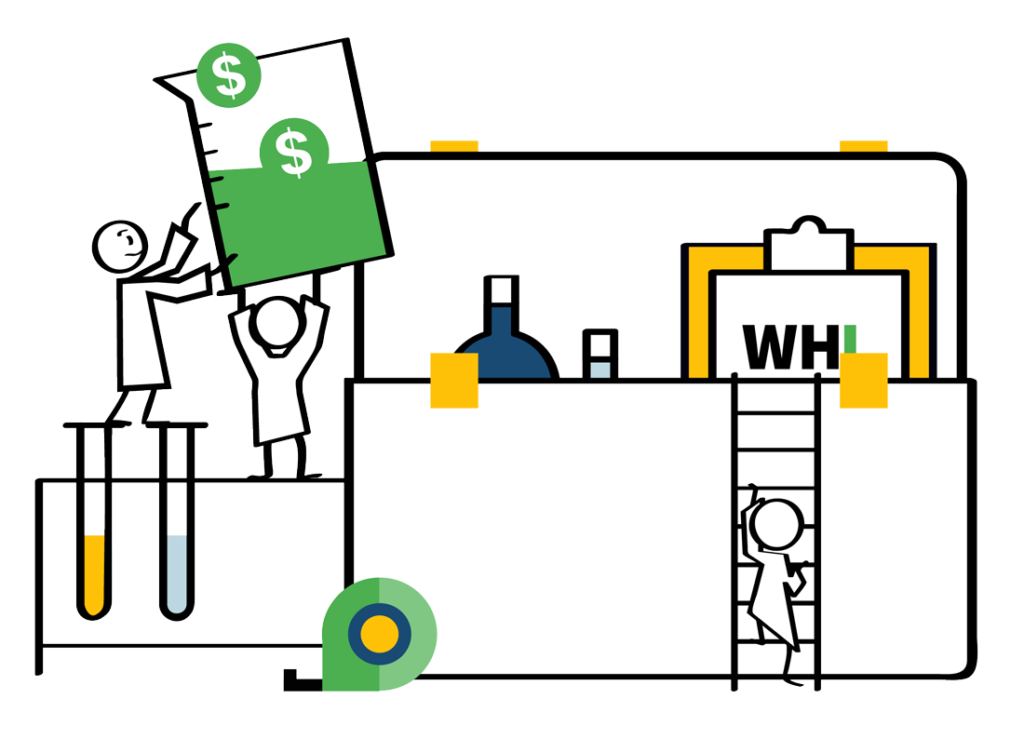Are you a busy person with little time to spare?
Of course you are. You’re a hard worker. You’re a go-getter. You’re a rock star.
How can a person like you find time for, well, just about anything else in life?
While you know you should spend more time on building your financial future, you just can’t find the time to do so.
If that describes you, don’t fear . . . there ways you can find time to make your financial future much, much brighter.

I partnered with Michael Hyatt in anticipation of his new book, Living Forward: A Proven Plan to Stop Drifting and Get the Life You Want, to come up with some of the extraordinary tips in this article.
Together, we’ll show you how to find time for your finances. Let’s do this.
1. Triage your calendar.
Mr. Hyatt’s tip to triage your calendar is fantastic. What does this mean?
When you triage your calendar, you’re assigning degrees of urgency to your tasks. For the tasks that must be done on a certain day, make sure you allocate enough time for those tasks.
If you discover some nonessential tasks on your calendar or task list – tasks that once were relevant but are no longer relevant – get rid of them. You no longer need them.
Finally, for the tasks that don’t have to be done today, make sure you schedule them for a different day or add them to a list you can work on next.
This tip to triage your calendar is perhaps one of the best ways to find the time to work on your financial future – whether it’s to build a budget, plan for retirement, or pay off your debt.
2. Discover the value of early mornings.
If you’re getting up, going to work all day, coming home exhausted, and spending the rest of your time with family, you might not find much time during the day to work on your finances.
In that case, you might find waking up earlier increases your opportunities for putting some financial plans into motion.
I recently started waking up early myself. Normally, I wake up at 5 AM, sometimes I wake up even earlier. This gives me time to get ready for my day and even get some extra work done on some of my goals before the world wakes to shake up my world.
It’s recommended that if you plan on using this tip you go to bed early. Sleep is important. Don’t neglect it.
While you might lose some late hours by using this tip, you’re probably going to be losing lower energy hours you might spend watching television or doing some other unproductive task.
Try it! Take charge of your mornings and watch your financial future grow brighter.
3. Practice saying no.
Hyatt suggests that there can be a positive impact to this negative word.
Imagine that you never said no. You would agree to everything thrown your way. The number of your responsibilities would skyrocket. You would be overwhelmed out of your mind.
Perhaps you already say no to some things. But do you say no to enough things?
In your life, you have various areas of responsibility: family, friends, work, finances, health . . . the list goes on and on. If you feel out of balance in one area, the fact of the matter is that you’re going to have to dedicate less time to one area in order to find more time for another: like finances.
In other words, you’re going to have to say no to something so you can say yes to another.
That doesn’t mean you have to – or should – fully neglect any one area of responsibility. It simply means that certain areas of responsibility might need to be trimmed so you can bulk up other areas of responsibility.
By saying no to more things that matter less than other things, you can sharpen your focus on what matters.
4. Dedicate a block of time to your finances.
One of the best productivity techniques I encountered was the idea to do similar tasks in the same block of time. Some might call this “bulk processing.”
When you work on and complete similar tasks together, there’s a natural efficiency that takes place during the process.
What’s faster: logging into your email five times per day and processing your email or logging into your email once per day and processing your email? Obviously, the latter shaves off some time. And every minute counts.
This principle can be applied to your finances as well. First, make a list of recurring and one-time financial tasks. Then, set aside a few consecutive hours every week to work on your list.
By dedicating a block of time to these financially-related tasks, you’ll find yourself saving time and getting a lot more done.
5. Guard your time.
Hyatt believes we must guard our time – and he’s right, of course. This is a huge part of finding time to work on our financial future.
Consider the possibility that the time that’s being used might not being used very well. Say, for example, that you schedule an hour each week to reconcile your bank account with your transaction register and to find areas to improve in your budget.
But, unfortunately, during that hour one week, you get a call from a friend, an email badge appears on your app icon (and you take a look), and you grab a snack. Perhaps you spent 40 minutes of that hour on your intended tasks, and 20 minutes on everything else. A third of your time was spent on distractions. Yikes.
You need to guard the time. Like money, you should “allocate” your time to a particular purpose and stick to the plan – except in cases of emergency.
An email is usually not an emergency. Neither is casual conversation with a friend or eating a snack (unless, perhaps, you have a blood sugar issue).
Eliminate distractions.
6. Focus on the five most important tasks of the day.
If you start your day by creating a long to-do list, you might find yourself only completing a few of the tasks on the list. Additionally, you might find yourself completing some of the less important tasks instead of the tasks that really require your attention.
While long to-do lists aren’t necessarily bad, unless you have time to prioritize your daily to-do list, it can become a distraction in itself from the things that are most important.
What’s the solution? Focus on the five most important tasks of the day by writing those down and making them non-negotiable.
Whatever you write on this short list, stick to it. And, you guessed it, try adding a task or two to this list that involves improving your financial future.
Here’s an example list:
- Work on construction proposal for new client.
- Schedule babysitter for tomorrow morning.
- Finish gathering tax paperwork for preparer.
- Buy life insurance.
- Create a new monthly income goal based on needs.
By adding a few financially-related tasks, you can exponentially improve your life.
Consider the value of creating a new monthly income goal if you’re self-employed and need to raise your income – this could benefit you for years to come!
Additionally, spending a few minutes on signing up for life insurance could save your family from financial disaster should something happen to a breadwinner.
Concluding Thoughts
We all have 24 hours in a day. No more.
Spending our time wisely benefits every area of our lives, not just our finances.
If you have a nagging feeling that you’re neglecting your financial future, or just about any other area of your life, I encourage you to pick up a copy of Michael Hyatt’s new book, Living Forward: A Proven Plan to Stop Drifting and Get the Life You Want.

You don’t have to be tossed back and forth in life, battered by the waves that come your way. Instead, you can attack those storms and ride those waves up to each crest. It’s not always easy, but it’s better than getting sideswiped and disoriented.
Proactively launch yourself into life. If you’re struggling with debt, find a way out. If you are living paycheck to paycheck, budget yourself to freedom. If your retirement looks grim, get with a financial advisor and build a path forward.
You can find the time to improve your financial future. Simply make it a priority and reap the rewards that come your way.


Leave a Reply